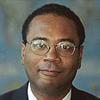12 Nov 2014 Black Legal Experts Support Alabama Lawmakers Over Special Interests in Supreme Court Redistricting Case
U.S. Supreme Court Urged to Curtail Use of Race in Redistricting
Old Law Demanding Racial Considerations Not a Help to Minority Voters
Washington, D.C. – At the U.S. Supreme Court today, legal experts with the Project 21 black leadership network are supporting the state of Alabama and its elected legislature in a defense against partisan and special interest groups unhappy with the state’s recent redistricting plan created by the state’s elected lawmakers. In a legal brief submitted to the Court, Project 21 argued legislators were compelled by federal law that was in force at the time to include race in its redistricting plan, but that recent rulings should now compel a stricter scrutiny of how race affects the creation of future legislative districts to the extent that the Court may once again need to reassess elements of the Voting Rights Act.
 “I anticipate the Court will make it clear that state legislatures across the land will not be expected to adapt their redistricting lines to meet pre-ordained racial goals,” said Project 21 Co-Chairman Horace Cooper, a legal commentator who both taught constitutional law at George Mason University in Virginia and served as a leadership staff member for the U.S. House of Representatives. “Aiding minority voters in their efforts to elect representatives of their choice must be balanced by the Constitution’s requirement that government should not use race as a tool for policymaking unless it is absolutely essential to do so. Race-based districts are a throwback to a bygone era. As is the case with government contracting and college admissions, state legislators should pursue colorblind reapportionment policies whenever possible.”
“I anticipate the Court will make it clear that state legislatures across the land will not be expected to adapt their redistricting lines to meet pre-ordained racial goals,” said Project 21 Co-Chairman Horace Cooper, a legal commentator who both taught constitutional law at George Mason University in Virginia and served as a leadership staff member for the U.S. House of Representatives. “Aiding minority voters in their efforts to elect representatives of their choice must be balanced by the Constitution’s requirement that government should not use race as a tool for policymaking unless it is absolutely essential to do so. Race-based districts are a throwback to a bygone era. As is the case with government contracting and college admissions, state legislators should pursue colorblind reapportionment policies whenever possible.”
The justices of the U.S. Supreme Court are considering the combined cases of Alabama Legislative Black Caucus v. Alabama and Alabama Democratic Conference v. Alabama, in which Alabama’s state-level legislative redistricting plan, based on 2010 Census results, was challenged for allegedly packing too many black voters and Democrat voters in majority-black districts. This plan was already upheld by the federal 11th Circuit Court of Appeals by a two-to-one vote. In rejecting the claim that the plan violated the 1st and 14th Amendments of the U.S. Constitution and the Voting Rights Act, Judge William H. Pryor wrote that “the overwhelming evidence in the record suggests that black voters will have an equal opportunity to participate in the political process the same as everyone else.”
“In modern politics, complaints about racial barriers to voting seem to have more to do with partisan griping than civil rights,” added Project 21’s Cooper. “It’s usually about whose ox is getting gored and not about real, legitimate issues involving protected rights.”
 “Infringements of state sovereignty through race-conscious federal mandates on legislative redistricting provide no effective protections for the black voter. This intrusion on fundamental liberties and constitutional protections only seems to advance political ideology and partisan efforts to win elections rather than protect minority communities,” said Project 21’s Patricia Nation, a lawyer who has practiced in the federal court system for nearly two decades. “In repeated cases, the U.S. Supreme Court affirmed that government classifications based on race must be subjected to strict scrutiny and are constitutional only if narrowly tailored to further a compelling government interest. There is no doubt that eliminating racism in American politics is a compelling interest, yet finding a balance with the Equal Protection Clause of the Fourteenth Amendment and post-civil rights era racial balancing statutes is not inconsequential.”
“Infringements of state sovereignty through race-conscious federal mandates on legislative redistricting provide no effective protections for the black voter. This intrusion on fundamental liberties and constitutional protections only seems to advance political ideology and partisan efforts to win elections rather than protect minority communities,” said Project 21’s Patricia Nation, a lawyer who has practiced in the federal court system for nearly two decades. “In repeated cases, the U.S. Supreme Court affirmed that government classifications based on race must be subjected to strict scrutiny and are constitutional only if narrowly tailored to further a compelling government interest. There is no doubt that eliminating racism in American politics is a compelling interest, yet finding a balance with the Equal Protection Clause of the Fourteenth Amendment and post-civil rights era racial balancing statutes is not inconsequential.”
Project 21 was part of a “friend of the court” legal brief written by the Pacific Legal Foundation and joined by the Center for Equal Opportunity. The brief noted that Alabama legislators are constitutionally-mandated to draw legislative districts and beholden to consider race under provisions contained in the Voting Rights Act at that time. It is this argument that they acted in accordance with the law when they created the map that is now in dispute. The brief argued further, however, that subsequent Supreme Court rulings against race-conscious rules mean strict scrutiny must be employed in the future to ensure racial considerations are absolutely necessary.
In 2013, Project 21 was similarly involved in the related Supreme Court case of Shelby County v. Holder that invalidated the “preclearance” formula in the Voting Rights Act that required certain states and localities, including Alabama, to gain federal approval for any voting changes such as redistricting. That decision, and another 2013 decision by the Court in the case of Fisher v. University of Texas in which Project 21 was also involved that called for “strict scrutiny” in the consideration of race in public policy, are incorporated in the organization’s legal brief in the Alabama case.
The Project 21 brief in the Alabama cases noted:
This Court should make clear that whenever a state actor makes race a factor in an official decision — whether contracting, education or redistricting — the action is unconstitutional unless it is the least restrictive means of furthering a compelling governmental interest…
Similarly, in the redistricting context, it should be no answer to say that the Legislature only slightly considered race, or that it placed other factors ahead of racial considerations. Any consideration of race by a governmental body must be subjected to strict scrutiny…
Reapportionment statutes should not be exempt from the same exacting scrutiny given to all other race-based classifications simply because the line between race-awareness and race-consciousness may be difficult to ascertain. It is possible to be aware of race and at the same time act in a race-neutral manner, and in such cases, the actions of legislatures should stand, regardless of the impact the decision has upon racial groups.
In its conclusion, the Project 21 brief in the Alabama cases warned that evolving Court precedent may force the justices to revisit the Voting Rights Act again to further reconcile outdated reasoning contained in Section 2 of the Act:
In these cases, Alabama was prohibited by federal law from acting in a race-neutral manner. Its redistricting was done under the preclearance regime in place before Shelby County… On this limited basis, the judgment of the district court should be affirmed.
Although the era of Section 5 preclearance is now behind us, the conflict between the Equal Protection Clause and the Voting Rights Act in redistricting is just beginning… [S]tates will continue to be placed in the impossible position of being required to comply with racial balancing statutes and the Equal Protection Clause simultaneously… If the Court finds that race-based redistricting should be subject to strict scrutiny in every case, it will soon have to confront the constitutionality of Section 2’s vote-dilution prohibition.
In 2014, Project 21 members have been interviewed or cited by the media on current events over 1,500 times, including by the Fox News Special Report with Bret Baier, the O’Reilly Factor, Fox and Friends, CNN’s Situation Room, Salem Radio Network, Sean Hannity, Jim Bohannon, Conservative Commandos Radio, Bill Martinez, Radio America, American Urban Radio Network, Bill Cunningham, Roger Hedgecock, Mike Siegel, Dana Loesch, Thom Hartmann, Progressive Radio Network, The Blaze, EurWeb, St. Louis Post-Dispatch, SiriusXM satellite radio, TVOne, the Philadelphia Inquirer, the Orlando Sentinel and 50,000-watt talk radio stations including WBZ-Boston, WJR-Detroit, KDKA-Pittsburgh and WLW-Cincinnati.
Project 21 has participated in several cases before the U.S. Supreme Court over the years regarding race preferences and voting rights and also defended voter ID laws at the United Nations. It has been a party to 13 legal briefs at various levels of the American judicial system. Its volunteer members come from all walks of life and are not salaried political professionals.
Project 21, a leading voice of black conservatives for over two decades, is sponsored by the National Center for Public Policy Research, a conservative, free-market, non-profit think-tank established in 1982.
Contributions to the National Center are tax-deductible and greatly appreciated .
-30-



